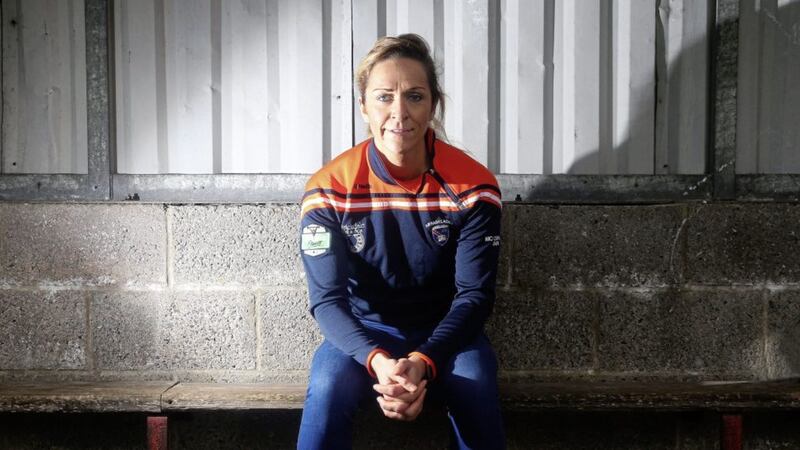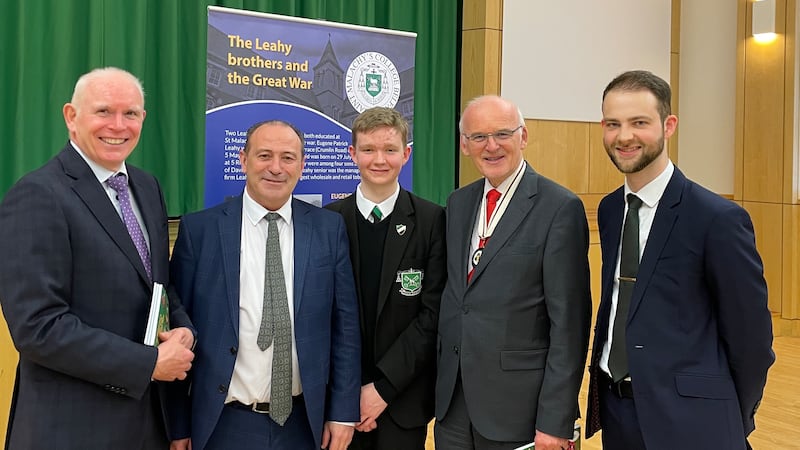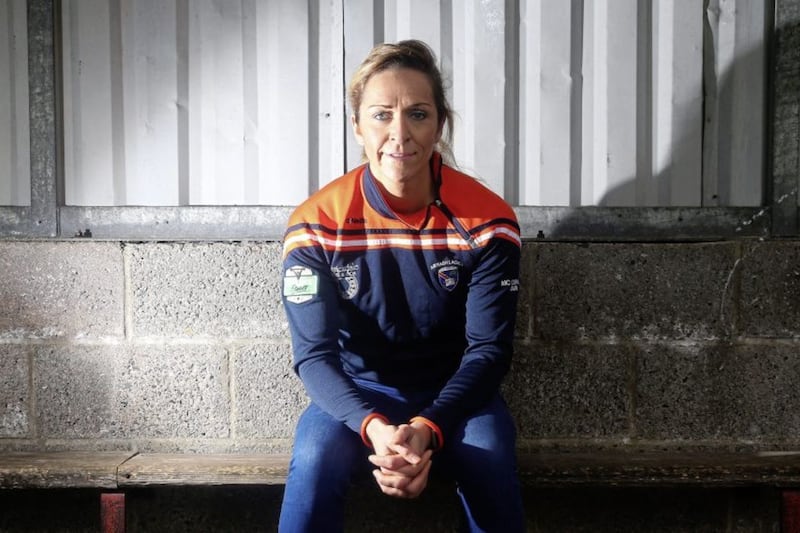FRESH from winning the Ulster GAA ladies Championship with Armagh, Dr Caroline O'Hanlon is tackling a "massive spike" in Covid cases among young healthy patients.
Such is her concern that the Co Down based GP is calling for the introduction of vaccine passports to gain entry to indoor pubs and restaurants in Northern Ireland - in a drive to improve uptake rates among the under-30s.
The 37-year-old Armagh midfielder and Northern Ireland netball international is working in a busy Newry practice, with more than 8,000 patients on their books.
Despite the rollout of the vaccine programme to 86 per cent of adults with their first dose, Dr O'Hanlon and her colleagues are treating rising numbers of young people suffering from debilitating conditions in the "aftermath" of the virus.
In an interview with The Irish News, the south Armagh woman expressed her "frustration" with low vaccine uptake among the over-18s but said that for many people, "just not getting around to it" was the issue as opposed to being "anti-vax".
The talented sports star - she has been played at the highest level for over 20 years - also admitted that her passion for GAA and netball has helped her mental health during Covid-19 job pressures.
"Work is very, very intense. You go in and you just don't stop until you come home again," the Carrickcruppen GAA clubwoman and Manchester Thunder netball star said.
"I know if I went home and just sat and dwelled on what I'd done that day or what I didn't do, that would massively impact on me. I am very lucky to have that outlet of sport, that complete distraction. My colleagues are also very supportive and facilitate me. I do feel very privileged."
The medic believes Stormont leaders should now follow the lead of the Republic and roll out vaccine certs to gain entry to bars and indoor dining as an incentive - a measure strongly opposed by the Hospitality Ulster organisation.
More than 30 per cent of 18-29 year-olds in the north have not been jabbed.
In England, proof of full vaccination will be required to access nightclubs and "other crowded venues" from autumn. Fans attending Premiership football games may also require vaccine certs.
With the north's vaccine uptake rates still lagging behind England, Scotland and Wales, Dr O'Hanlon said the pressures of the fourth wave were being felt.
The border city has recorded some of the highest infection rates during the pandemic.
"We've just seen a massive spike locally and it's predominantly younger people. We in general practice are not just seeing the acute cases but the aftermath - the long Covid cases," she said.
"It's been talked about but I don't think people realize the impact this condition has and the fact there is no treatment for it as such.
"We seeing people in their 50s and 40s and younger with chronic fatigue and shortness of breath. We're talking about people with no underlying health conditions who are really debilitated and not able to get back to work or their full fitness.
"It's obviously been a very tiring time for the workforce but we thought that once we got the vaccine in that things would settle down.
"So it's been frustrating, especially within the younger age group that there hasn't been that higher vaccine uptake. I appreciate that there was some concern at the beginning but there's been enough evidence on a global scale to show that the benefits outweigh the risks for the general population."
As a younger GP, Dr O'Hanlon believes part of the "vaccine hesitancy" relates to her generation having never been exposed to infectious diseases.
"Even as a medical professional, I have never seen proper measles, rubella, TB or other diseases that have been almost eradicated from our society - whereas the older generation saw people get these illnesses and die," she added.
"There's nearly an arrogance because the health service is good and our medications and treatments work. Generally speaking, people die of chronic diseases. They don't die of infectious diseases as much."
Just days after the north's mass vaccination centres were stood down and latest studies revealing the link between deprivation and low uptake in the north, Dr O'Hanlon said she supported the idea of targeted door-to-door contacts by health professionals to inform and encourage more to come forward:
"I would support outreach work but only if the resources are in place to do so and at the moment resources are stretched. I think there needs to be a combination of things. We've seen in the Republic where people are not allowed to go into places unless they're vaccinated.
"The reality is we have vulnerable people in our society - and I'm not just talking about older people but younger people with chronic underlying illnesses - who've had had to lock themselves away for the best part of two years.
"So to go into indoor venues without being vaccinated, you are putting these people at risk.
"When the vaccine came out, we were seeing light at the end of the tunnel. But with younger people not continuing the uptake it is impacting. I don't just think it's the 'anti-vax' movement but there's an element of inconvenience and people not getting round to it. I don't think there's any selfishness or malice as such but some people are not priortising it.
"But I do think when there is necessity to have a vaccine passport for travel or entry to bars, the uptake increases because people realise it is going to impact on their day-to-day life. We can see how it has already impacted in the Republic and the UK."
As the number of cases and Covid hospital admissions soars against a backdrop of record high waiting lists, the GP warned of the worrying numbers of patients they are treating with advanced illnesses including cancer.
"It's a combination of people under-estimating their symptoms and not wanting to bother their doctors, which is very difficult. Then you have delays with diagnostic investigations and treatments because the hospitals are overwhelmed," Dr OHanlon explained.
"We can't afford for these patients to be delayed any further - it's all well and good protecting yourself but it's going to reach everyone's door at some stage."


